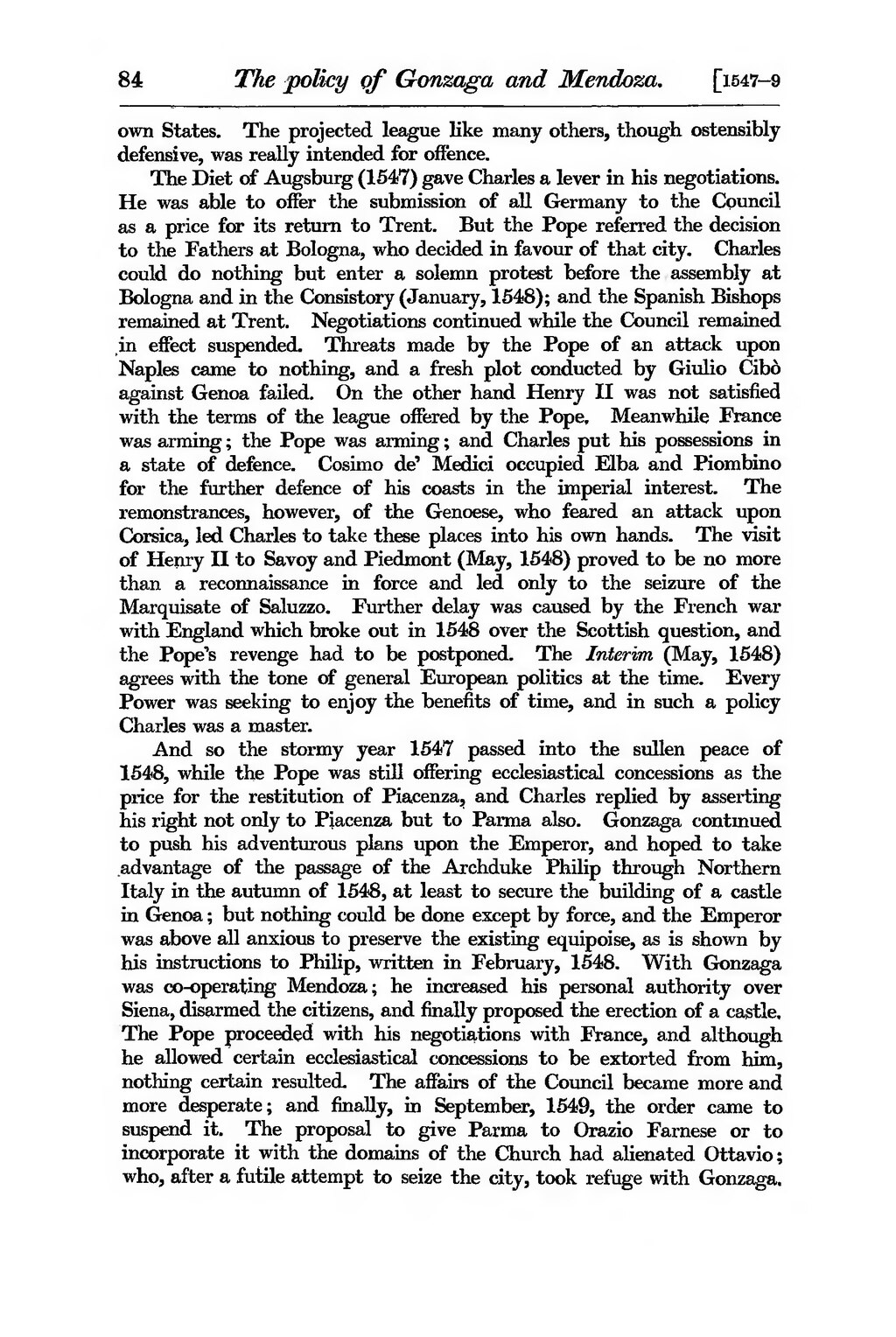own States. The projected league like many others, though ostensibly defensive, was really intended for offence.
The Diet of Augsburg (1547) gave Charles a lever in his negotiations. He was able to offer the submission of all Germany to the Council as a price for its return to Trent. But the Pope referred the decision to the Fathers at Bologna, who decided in favour of that city. Charles could do nothing but enter a solemn protest before the assembly at Bologna and in the Consistory (January, 1548); and the Spanish Bishops remained at Trent. Negotiations continued while the Council remained in effect suspended. Threats made by the Pope of an attack upon Naples came to nothing, and a fresh plot conducted by Giulio Cibo against Genoa failed. On the other hand Henry II was not satisfied with the terms of the league offered by the Pope. Meanwhile France was arming; the Pope was arming; and Charles put his possessions in a state of defence. Cosimo de1 Medici occupied Elba and Piombino for the further defence of his coasts in the imperial interest. The remonstrances, however, of the Genoese, who feared an attack upon Corsica, led Charles to take these places into his own hands. The visit of Henry II to Savoy and Piedmont (May, 1548) proved to be no more than a reconnaissance in force and led only to the seizure of the Marquisate of Saluzzo. Further delay was caused by the French war with England which broke out in 1548 over the Scottish question, and the Pope's revenge had to be postponed. The Interim (May, 1548) agrees with the tone of general European politics at the time. Every Power was seeking to enjoy the benefits of time, and in such a policy Charles was a master.
And so the stormy year 1547 passed into the sullen peace of 1548, while the Pope was still offering ecclesiastical concessions as the price for the restitution of Piacenza, and Charles replied by asserting his right not only to Piacenza but to Parma also. Gonzaga continued to push his adventurous plans upon the Emperor, and hoped to take advantage of the passage of the Archduke Philip through Northern Italy in the autumn of 1548, at least to secure the building of a castle in Genoa; but nothing could be done except by force, and the Emperor was above all anxious to preserve the existing equipoise, as is shown by his instructions to Philip, written in February, 1548. With Gonzaga was co-operating Mendoza; he increased his personal authority over Siena, disarmed the citizens, and finally proposed the erection of a castle. The Pope proceeded with his negotiations with France, and although he allowed certain ecclesiastical concessions to be extorted from him, nothing certain resulted. The affairs of the Council became more and more desperate; and finally, in September, 1549, the order came to suspend it. The proposal to give Parma to Orazio Farnese or to incorporate it with the domains of the Church had alienated Ottavio; who, after a futile attempt to seize the city, took refuge with Gonzaga.
